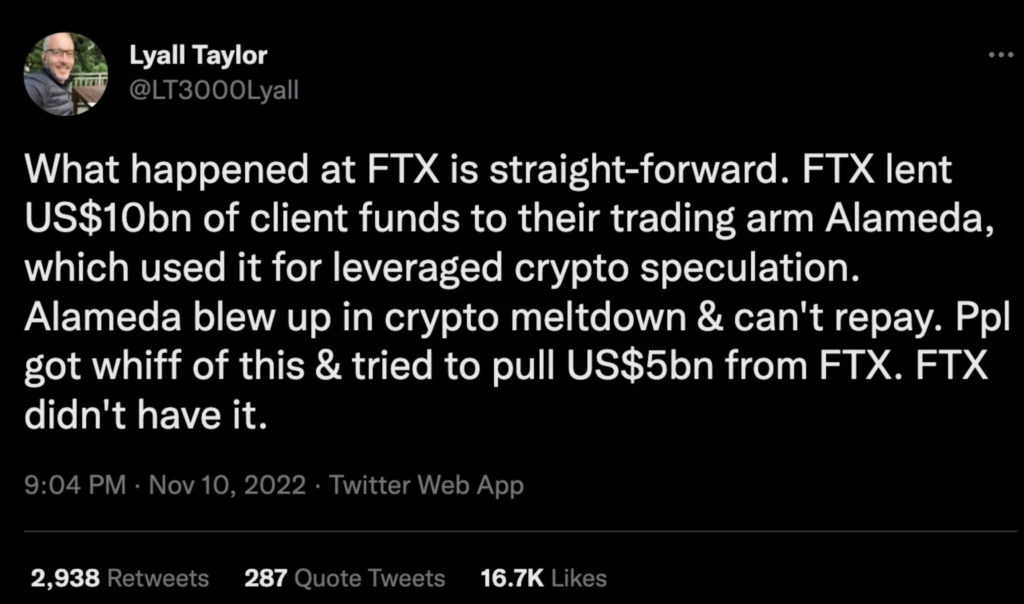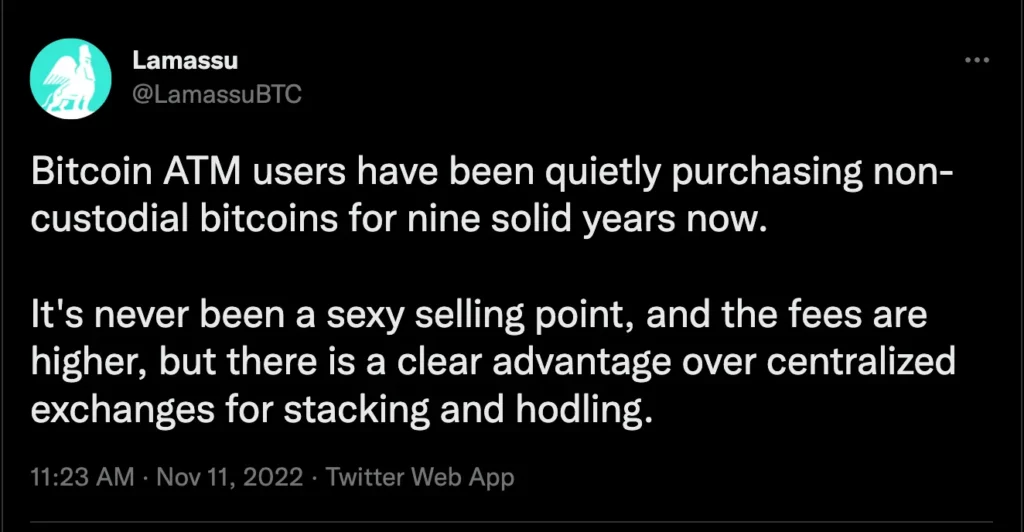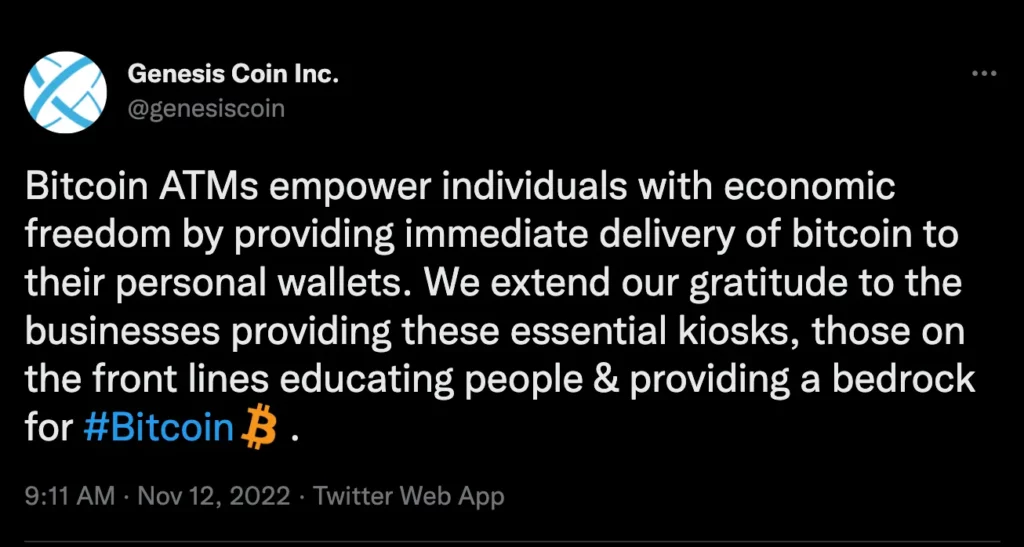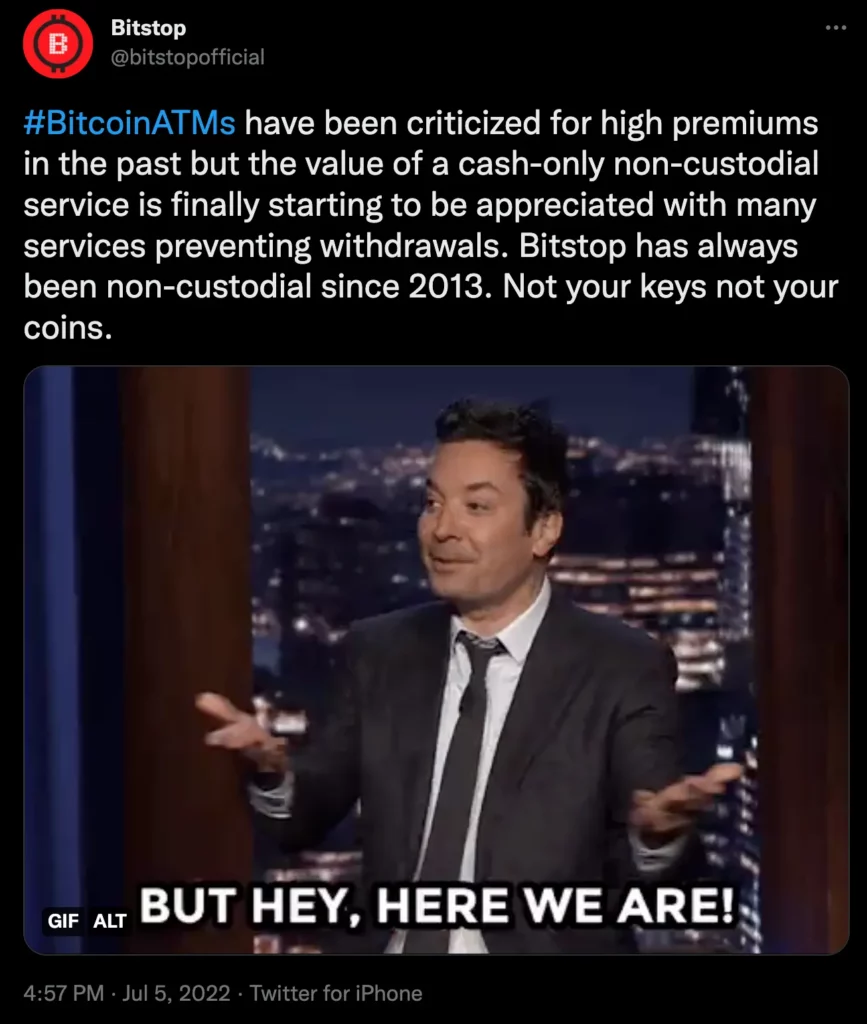
Non-custodial Bitcoin ATMs show their value after many lose billions from FTX implosion
After this week’s massive news about Bitcoin Exchange FTX blowing up, investors and traders and beginning to understand the difference between custodial exchanges and non-custodial Bitcoin services like Bitcoin ATMs. There is a famous expression in Bitcoin: “Not your keys, not your coins.” Everyone is finding this out the hard way after many lost billions when FTX Bitcoin exchange was revealed to essentially be a Ponzi scheme. Investors both big and small found out that their Bitcoin and money on FTX essentially did not exist or was frozen and they could not withdraw.

The FTX exchange was using customer funds to lend to their hedge fund Alameda research to make risky bets without permission. FTX was able to do this because FTX had full control over their customer’s cryptocurrency private keys. If customers used non-custodial services such as Bitcoin ATMs instead, things may have ended up differently. Bitcoin ATMs provide a convenient way for people to buy and sell Bitcoin without having to go through a third party. Non-custodial Bitcoin ATMs are particularly useful for those who want to keep their bitcoin in a secure wallet.
1. Centralized custodians can’t be trusted
It is becoming increasingly clear that centralized exchanges like FTX and others should not be trusted blindly. FTX’s implosion has shown us the importance of understanding the difference between custodial and non-custodial exchanges, as well as the value of decentralized services like Bitcoin ATMs. Even with strict regulation and top-tier investors and backing, it’s clear you really can’t place your trust in institutions to hold your Bitcoin. Investors need to understand why self-custody matters before investing in Bitcoin and cryptocurrencies.
Non-custodial Bitcoin ATMs provide an easy and convenient way to buy and sell Bitcoin. Bitcoin ATMs do not hold your Bitcoin. Bitcoin ATMs require you to take possession of your Bitcoin and cryptocurrency where you self-custody your private keys. This way, you do not have to trust Bitcoin ATMs. You have full control over your money. Bitcoin ATMs are convenient, instant, and non-custodial. You scan your Bitcoin wallet at the machine, insert your cash and the Bitcoin ATM sends the Bitcoin to your wallet which you control. For these reasons, we can expect demand for non-custodial Bitcoin ATMs to continue to grow in the coming years. Bitcoin ATMs are starting to see some of their highest volumes after the FTX crash. Even though the fees for Bitcoin ATMs can be somewhat higher, people are beginning to understand the value proposition of their non-custodial model.
2. The difference between custodial exchanges and non-custodial exchanges
Custodial exchanges are when a third party holds your Bitcoin and cryptocurrency. This third party can be an exchange, such as FTX, or a wallet service, such as Coinbase. Because a third party is holding your Bitcoin and cryptocurrencies, you have to trust that this third party will hold and protect your assets. Centralized exchanges like FTX are especially at risk for security breaches. In the case of FTX, investors found out that their money was not actually held by FTX but was lent to their hedge fund without permission. This caused many investors to lose their money when the exchange went bankrupt.
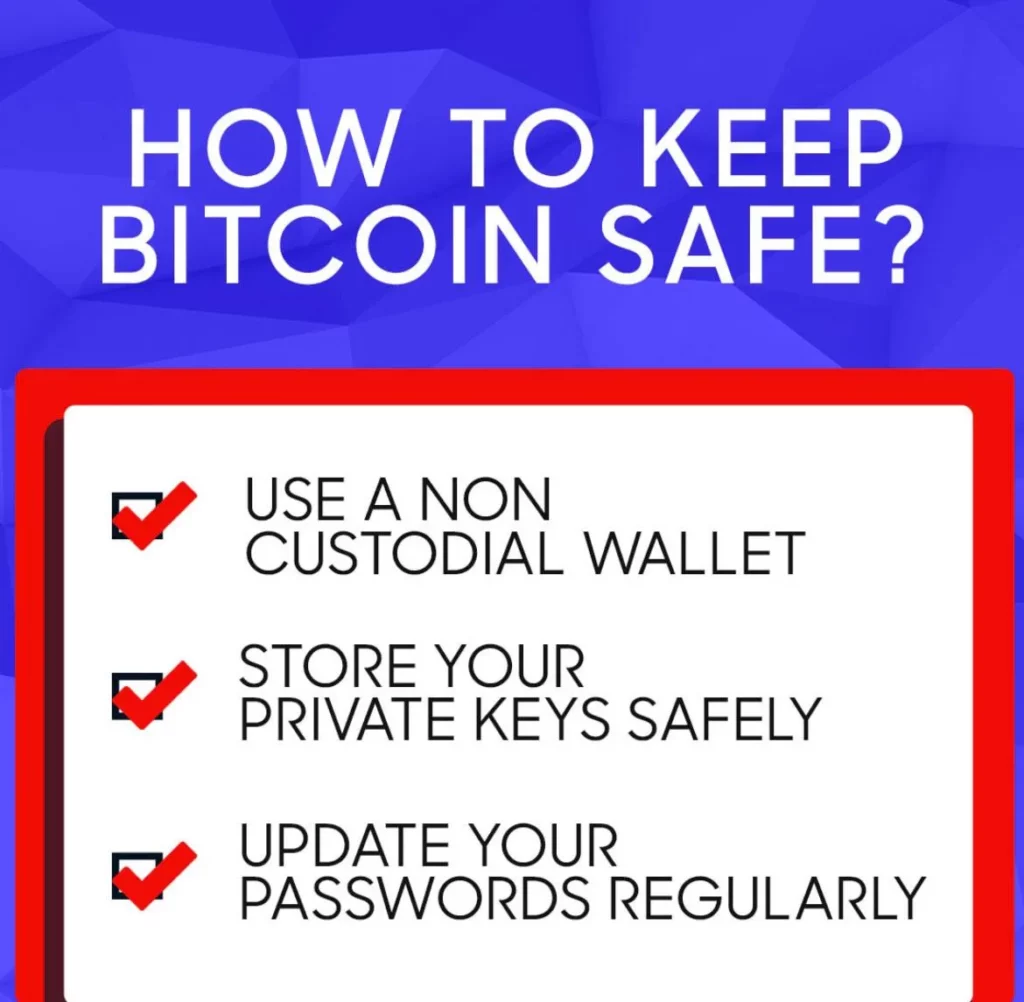
Non-custodial exchanges or self-custody is when you hold your Bitcoin private keys and cryptocurrencies. Self-custody is important because it removes the need to trust a 3rd party. You control your own private keys. This means that you are in charge of your own money and you do not have to trust a third party. Non-custodial exchanges and services do not require you to blindly trust them. You have control and transparency over your bitcoin.
People are beginning to understand the difference between custodial and non-custodial exchanges. They will either learn quickly the easy way or learn the hard way and lose a lot of money in the process. There are many many cases of Bitcoin exchanges losing the money of people who trusted them.
3. How do Bitcoin ATMs work?
Non-custodial exchanges or self-custody is when you hold your Bitcoin private keys and cryptocurrencies. Self-custody is important because it removes the need to trust a 3rd party. You control your own private keys. This means that you are in charge of your own money and you do not have to trust a third party. Non-custodial exchanges and services do not require you to blindly trust them. You have control and transparency over Bitcoin ATMs provide a convenient way for people to buy and sell Bitcoin and take possession of their own private keys. They are convenient, instant, and non-custodial. Non-custodial Bitcoin ATMs are becoming increasingly important to service people who want to invest in Bitcoin that don’t want to worry about having to trust a 3rd party with custody.
Bitcoin ATMs work by allowing users to scan their Bitcoin wallets at the machine, insert cash, and have the BTC sent to their wallet. They control their money. Bitcoin ATMs do not control user funds. Horrible situations like FTX can’t happen when you are taking possession of your private keys. The problem with online Bitcoin exchanges is that they hold your coins. Because you control your private keys, you do not have to trust anyone else with your money. Centralized exchanges like FTX are at risk for security breaches, but with non-custodial Bitcoin ATMs, you don’t have to worry about that. It’s cash for Bitcoin and Bitcoin for Cash. Instant settlement on both sides. A bearer instrument for a bearer instrument. No credit risk.
Bitstop has been providing Bitcoin ATMs since 2013. We have thousands of Bitcoin ATMs that are conveniently located that provide Bitcoin to your wallet instantly for cash. We have never held customer funds and we have sold tens of thousands of Bitcoin over the last 9 years without losing anyone’s money. We are trusted, regulated and will continue to remain non-custodial to make sure our customers never have to trust us. You can find a Bitcoin ATM near you on our website:
4. The future is self-custody, decentralization, and transparency
Non-custodial exchanges and self-custody are becoming more and more popular as people become increasingly aware of the risks associated with custodial exchanges like FTX. Centralized exchanges are vulnerable to security breaches, and insiders stealing customer deposits. Investors have lost millions of dollars in the past due to hacks. With self-custody, you don’t have to worry about that. You control your own money and you are in charge of your private keys.
Decentralized exchanges are also becoming more popular as people become increasingly frustrated with the lack of security at centralized exchanges. Decentralized exchanges do not require you to trust a third party with your money. They are not always as convenient as centralized exchanges, but the trade-off is that you probably won’t lose your money. Not a bad trade-off to be honest.
Finally, transparency is becoming increasingly important to investors. They want to be able to see where their money is going and they want to be sure that it is safe. Expect radical transparency in the future for exchanges. Cryptographic real-time proof of reserves and proof of liabilities. More on-chain visibility into full-reserve backing and permission required notice when funds are being lent out and to whom.
FTX and countless other exchange blow-ups have shown us that the future is non-custodial and transparent.
Conclusion
Self-custody, decentralization, and transparency are the future of the Bitcoin industry. Services like Bitcoin ATMs and Bitstop have been leading the way for many years. Centralized exchanges are vulnerable to security breaches, and insiders stealing customer deposits. Get your funds off of exchanges! Do not trust these exchanges! Investors have lost millions of dollars in the past due to hacks and theft. You should not have to trust anyone with your money. If you decide that you prefer someone hold your funds other than you, they should have the highest standards when it comes to transparency that your funds are actually fully backed 1:1. Ask the exchange is they show cryptographic proof-of-reserves in real-time including their liabilities!
It’s optimal that you control your own money and you are in charge of your private keys. Practicing self-custody and using tools that make self-custody easy like hardware wallets: Ledger or Trezor is a worthy endeavor. They are not always as convenient but the trade-off is that you probably won’t lose your money.
Related Posts
